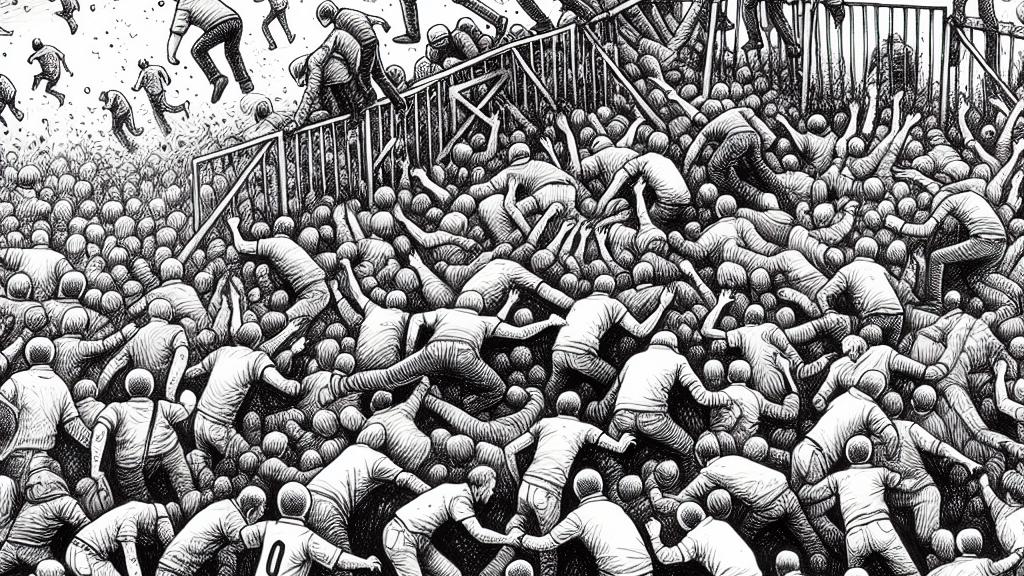Tragic Stadium Crush in Guinea: Rights Groups Report High Casualties
Overview
- A horrific crush at a football match in Nzérékoré, Guinea, has led to the devastating deaths of at least 135 fans, many of whom were children.
- Conflicting reports from human rights organizations and the military government amplify the urgency for accountability and clarity.
- Public outcry over insufficient safety measures points to a critical need for reform in sporting event management practices.

The Catastrophic Incident Unfolds
On December 1, 2024, the serene atmosphere of a local football match in Nzérékoré shattered as chaos took over. What was meant to be a joyful gathering swiftly transformed into a scene of horror. After a contentious refereeing decision ignited tensions, fans surged towards the lone small exit of the stadium, leading to overwhelming panic. Reports indicate that around 135 lives were lost, predominantly children, according to estimates from various human rights organizations. In sharp contrast, the military government insisted that only 56 fatalities occurred, prompting serious concerns about truth and transparency. Eyewitness accounts reveal harrowing details; individuals climbed over barriers to escape while others struggled to breathe under the weight of the crowd, exacerbated by police unleashing tear gas in a desperate attempt to control the chaos.
Blame, Responsibility, and Public Trust
As investigations into the tragedy continue, a tide of blame is crashing onto the military junta, led by President Mamady Doumbouya. Rights groups insist that both the event organizers and the government neglected crucial safety protocols, and the disturbing lack of adequate exit routes facilitated the crush. Justice Minister Yaya Kaïraba Kaba has announced the launch of a judicial inquiry. Yet, he simultaneously warned that anyone spreading 'unverified information' could face legal consequences—a remark interpreted as a threat against free speech. This double-edged warning only amplifies public distrust, igniting outrage among citizens seeking justice for those they lost. It’s a community grappling not only with grief but also with a profound sense of betrayal as they call for accountability and change.
A Global Call for Enhanced Safety Measures
This tragic event resonates far beyond Guinea, raising alarm bells about crowd safety at sporting events worldwide. The memories of past calamities like the Hillsborough disaster, where 97 fans perished due to systemic failures, serve as stark reminders of why rigorous safety standards are critical. It’s time for the global sports community to reflect and take decisive action. As Guinea confronts the aftermath of this catastrophe, there lies an opportunity for meaningful reform. Stadiums should be sanctuaries for celebration, where fans gather to experience joy in unity, not sites of unimaginable sorrow. Let us stand together and advocate for stricter regulations, improved crowd management protocols, and an unwavering commitment to ensuring that no more lives are lost in such preventable tragedies. Together, we can pave the way for safer sporting experiences, honoring those we have lost.

Loading...